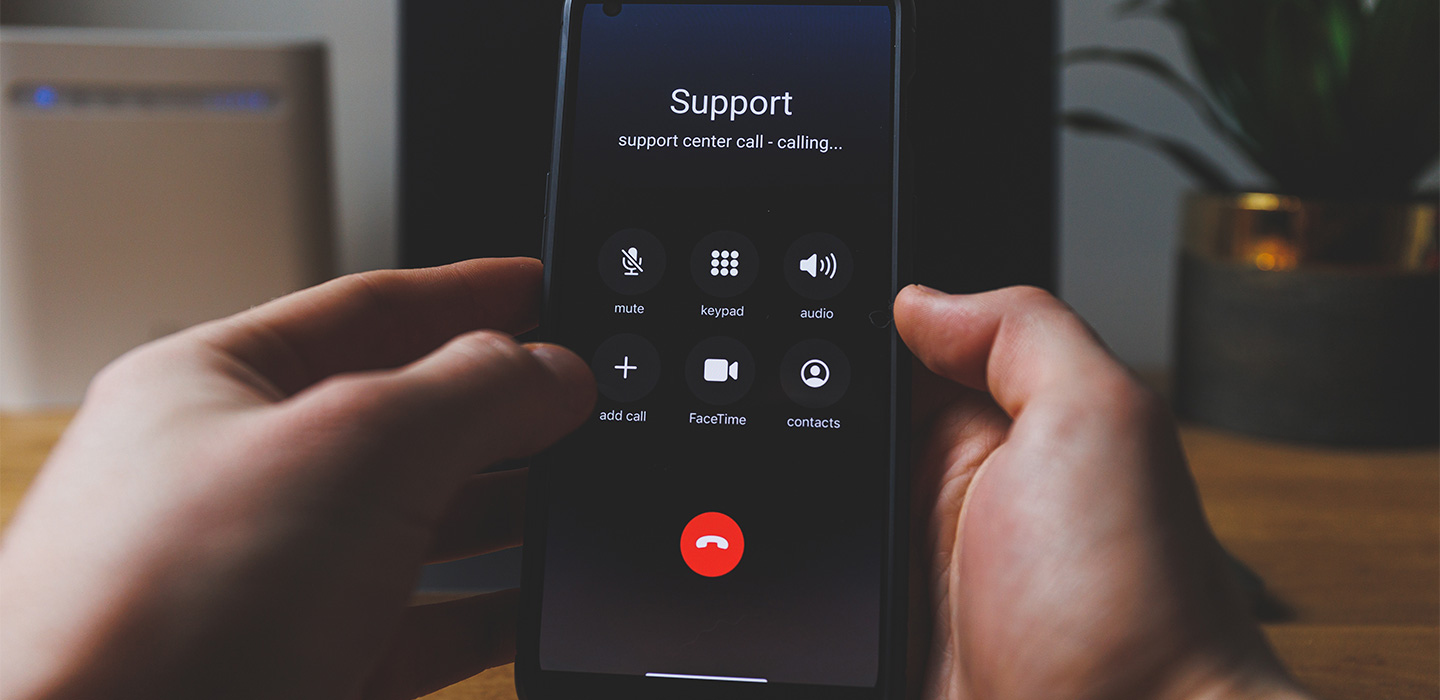As technology becomes more sophisticated, fraudsters do too. One impersonation scam gaining traction offers tech support, contacting consumers by phone, email, text or directly through their computers or tablets. Posing as representatives from legitimate tech support companies, scammers claim your computer is infected with a virus or other malware and offer to fix the issue for a fee. Once they gain remote access to your computer, they’ll try to steal your personal and financial information, such as passwords and credit card numbers, or install malicious software.
Member Shares Her Scam Story
Our 71-year-old Member was playing her usual crossword puzzle on her tablet when a bright, flashing pop-up appeared with an audible siren alerting her the tablet had been hacked. She was scared. Wanting to protect her device and personal information, she called the tech support phone number on the pop-up. Our Member thought she would be helped by a tech support representative to resolve the issue. Instead, she was transferred from person to person, and the diagnosis for her tablet just kept getting worse. She was even told she might face legal action because there was illegal content on her device. The only solution? She had to grant the fraudsters remote access to her device and buy gift cards to pay for the “maintenance” needed to save her tablet. She lost thousands of dollars and spent countless hours trying to restore her device.
How to Spot a Tech Scam
Learning the signs of a tech support scam can help you protect your devices and personal information. In our Member’s story, a pop-up notified her of the alleged hack. Tech support companies don’t use pop-ups or contact you to tell you your computer has been compromised.
Don’t click the pop-up, call the phone number or click the tech support link. Instead, exit the browser or power down and unplug your device.
Fear tactics are another sign someone could be trying to scam you. These fraudsters try to scare victims into thinking they must act now or lose everything. In the case of our Member, the flashing, bright pop-up, siren and hacked message were meant to panic her into calling the number on the screen. Be skeptical of any pop-up or alert with an urgent message saying you’ve been hacked, or malware has infected your device.
Never grant remote access to a stranger. Once a fraudster gets access to your device, they can steal your personal information, install malware and coerce you to pay them in cash, checks or gift cards. If you think there is a problem with your device, research and contact a tech support company via the information on their website.
How to Guard Against Tech Scams
- Be skeptical of unsolicited contacts. If you receive an unexpected call, email or pop-up message claiming to be from tech support, don’t engage.
- Always verify the identity of the caller or the legitimacy of the message by directly contacting the company through the contact information on their website.
- Never Share Personal Information: Legitimate tech support representatives will never ask for personal or financial information.
- Keep your software and security updated: Regularly update your operating system, software and antivirus programs to protect your computer from vulnerabilities.
- Be cautious before downloading or installing software from unknown sources. This helps prevent scammers from gaining access through malware or phishing attempts.
.

